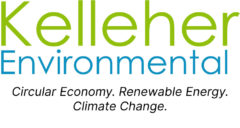Manitoba Waste Diversion and Recycling Framework Review; Manitoba Conservation and Climate (2021): Kelleher Environmental was part of the Dillon Consulting Limited team conducting a comprehensive review of current Manitoba waste and recycling legislation and interviews with PROs and other stakeholders to identify best practices for regulatory change.
Preliminary Resource Recovery Report Card and Gaps Assessment for Canada – NRCan (2020): In January 2020, NRCan contracted with Kelleher Environmental in association with Millette Environmental to research and prepare a source recovery scoping study and preliminary circular economy report card for Canada. The objective was to provide an estimate for the recovery and recycling of selected materials, products, and industrial residuals in Canada. The bulk of the project work involved reviewing reports, articles in trade journals, websites, the internet and other sources of information to quantify current recycling efforts in Canada and to identify gaps in the data which should be filled through additional research.
Development of a Waste Management Funding Formula – Indigenous and Northern Affairs Canada (2017): In partnership with Sonnevera, and with research assistance from SAMI Environmental, developed a funding formula to allocate $409 million in federal infrastructure funds to 600 reserves across Canada taking local conditions and current infrastructure into account, as well as providing incentives to divert more waste. Best practices and current costs for waste management systems in small, remote and northern communities were reviewed to determine appropriate funding for different waste management activities.
Oxford County IC&I Waste Study (2017): As a sub-consultant to AET Ltd, carried out an assessment of IC&I waste generation in Oxford County, characterized the current IC&I waste management infrastructure, likely recycling levels and estimated the amount of residual IC&I waste disposed outside county boundaries.
Recycling Contingencies for Extraordinary Events – Metro Vancouver Solid Waste Department (2016-2017): The study evaluated vulnerabilities and the level of risk associated with different market disruptions in the Metro Vancouver waste management system, and identified policies and actions required to put contingencies in place to address future recycling processing or market disruptions. Policy options that could reduce risk were also evaluated.
Long Term Waste Management Strategy – City of Toronto (2014-2016): As a sub-consultant to HDR, Maria Kelleher was heavily involved in research, development, and evaluation of technical, policy, and program options for increasing diversion of single-family, multi-residential, IC&I, and CRD waste as part of the City of Toronto’s 50-year strategy.
Baseline Estimates of Annual Consumer Battery Sales into the US and Canada – Call2Recycle, (2015): Developed a methodology for Call2Recycle to estimate consumer batteries sold and available for recycling in each province and territory in Canada, and for each state in the US, by chemistry.
Member of Blue Box Cost Containment Panel – Waste Diversion Ontario (WDO) (2015): Maria Kelleher was an independent citizen member of the Blue Box Containment Panel convened by WDO in 2015 to determine how to incorporate cost containment principles in the calculation of Ontario industry’s annual funding for the Blue Box printed paper and packaging recycling program.
Lifespan Model to Estimate Amount of Large Household Appliances Available to Recycle – Major Appliance Recycling Roundtable (2015): Maria Kelleher created a lifespan model to estimate the amount of major appliances available to recycle in BC for 5 years into the future. Results were used to report recycling rates to the BC government.
Technical Guidelines for Environmentally Sound Management (ESM) of Spent Lead-Acid Batteries in North America – Commission for Environmental Cooperation (2014-2015): As a sub-consultant to CM Consulting, Kelleher Environmental researched and wrote a draft technical guideline for the environmentally sound management (ESM) of spend lead-acid batteries in North America (US, Canada, and Mexico). Researched best practices for collection, pre-processing, smelting and refining of lead from recycled batteries, and practices to protect worker health and safety, and the environment.
Recycling Trends Analysis – City of Calgary (2014): In May 2014, in an effort to better forecast and prepare for future tonnages and material types, and to target communication and education for the program in the future, the City of Calgary commissioned CM Consulting (in association with Kelleher Environmental and Source Resource Management) to conduct research to study the factors that are influencing a downward trend in recycling. A summary of the study’s findings can be found here.
Diversion vs. Net Cost Analysis for the Ontario Blue Box System – Continuous Improvement Fund (CIF#722) (2014): Kelleher Environmental was commissioned by the Continuous Improvement Fund to carry out a “high level analysis” of the most cost efficient way in which to add materials and increase diversion through the Ontario Blue Box system. The impacts of changing Blue Box material composition on diversion rates and the sequence in which materials should be added to the Blue Box to increase diversion over time were also addressed.
Integrated Waste Management Master Plan – Region of York (2011-2013): As a sub-consultant to HDR, Kelleher Environmental was responsible for best practice research on multi-residential recycling; management of IC&I and CRD materials, sustainable financing of the solid waste management system, and identification of the implications of policy options such as full EPR for the 40-year plan.
